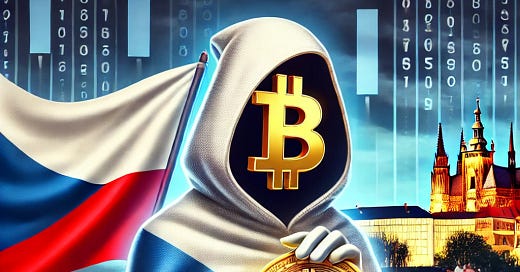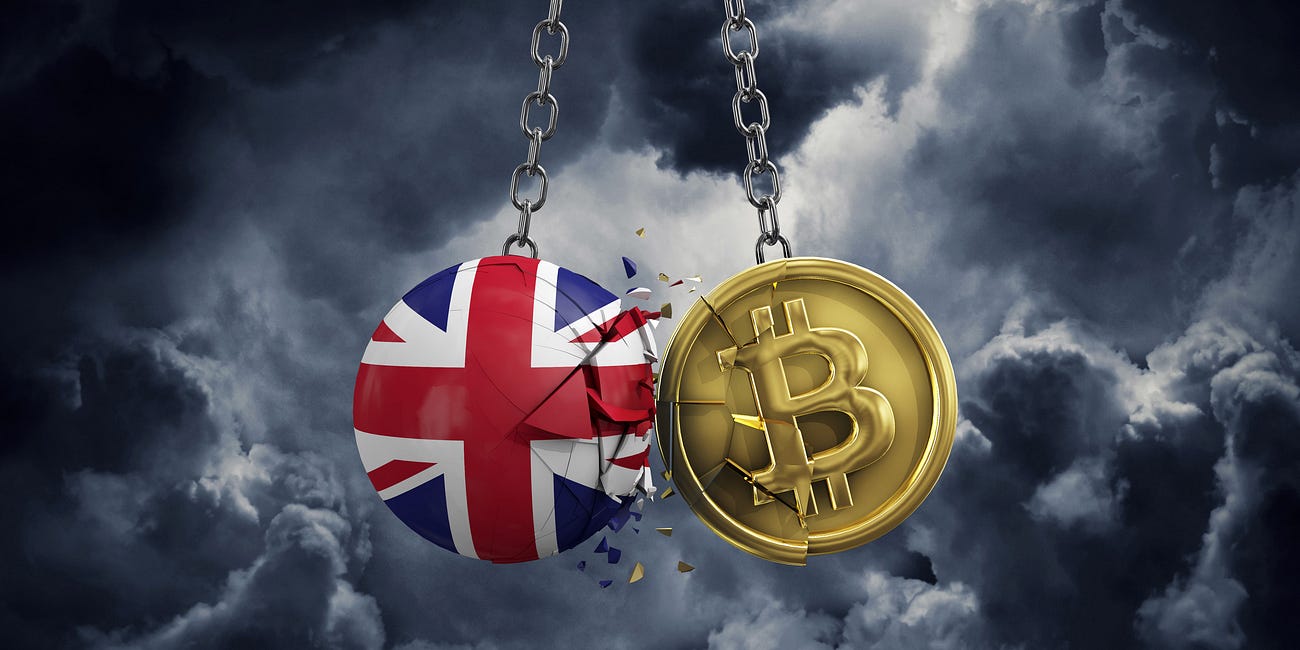Aleš Michl, the Head of the Czech Central Bank, wants his country to buy seven billion euros of bitcoin, amounting to 5% of the bank’s reserves. He will present his plans to the board of the CNB tomorrow, after which time there’ll be a much clearer picture as to the direction that the Czech central bank will take.
“Of course, if you compare my position with other bankers, then I’m the one entering the jungle, or the pioneer,” Michl said. “I used to run an investment fund, so I’m not a typical investment banker I would say, I like profitability.”
He’s right that his position is in stark contrast with the “responsible” bureaucrats at most central banks. Over the past few years, the ECB has published a litany of papers detailing their concerns about bitcoin and how it could damage the environment, exacerbate inequality, and erode faith in fiat currencies. The freedom afforded to Czech citizens by dodging the euro bullet and sticking with koruna offers the country a remarkable opportunity.
Of particular note in this regard is the series of nonsense published by Jürgen Schaaf and Ulrich Bindseil1, whose papers exposed just how little the ECB understands bitcoin. The lack of effort that went into these papers was morally objectionable. Oddly enough, the pair seem to have plagiarised the title for one of their papers from a novel about homosexual erotica — but perhaps that’s just the sort of thing that one ought to expect from the ECB. One could address each mistake/error/lie in Bindseil and Schaaf’s papers, but to do so would be a fools’ errand; academic integrity has never been the forte of central bankers, who typically serve little other purpose than to parrot Keynesian propaganda and steal from the citizenry via seigniorage. Since the publication of their first report in November 2022, the euro has lost over 85% of its value when denominated in bitcoin; these people should not be considered authority figures, and one would hope that Michl’s colleagues support his motion tomorrow.
In lieu of taking the German approach of totally unnecessary and unforced errors, Michl’s approach is far more forward-thinking. After graduating LSE, where he studied game theory, Michl went on to found an algorithmic asset-management fund. It thus makes sense that he’d be more cognisant of the catalysts that will propel future growth of the Bitcoin network than your typical, garden-variety central banker.
Insofar as establishing a strategic reserve for the central bank is concerned, Michl’s ideas could make Czechia one of the largest nation state holders of bitcoin in the world. At current market prices, seven billion euros could scoop up roughly 70k bitcoin, which would place them ahead of El Salvador, Bhutan, and Britain, and behind only the US and China.
He has conceded that such a strategy would not be without risk, but that bitcoin’s lack of correlation to government bonds makes it a perfect asset for diversification.
Speaking to The Financial Times, he said:
“It’s possible to have a big range of outcomes, that bitcoin will have a value of zero or an absolutely fantastic value . . . but in our history we have also had some stocks like Enron or the payment company Wirecard, so we have some experience with bad investments, so, yes, I’m ready [for a possible Bitcoin collapse] … But I’m saying that my goal is to diversify the portfolio, so if bitcoin is good [for that], then let’s have it.”
In other news, Matthew Elliott MP put a question to the British government about their bitcoin holdings, and they responded that they do not currently have any bitcoin whatsoever, since it is custodied by the Met Police. There is little way to explain this fallacious logic, other than to illustrate that the Labour government is utterly inept and does not understand how any of its own ministries actually work. As per The Police Act of 1996, The Treasury has full authority over this bitcoin, should they choose to exercise it. For the time being, no reassurance has been given to the British public that the bitcoin is being stored with adequate custodial measures — it isn’t that there’s a lack of coherence, but that the government is yet to develop any sort of policy for what to do with it at all. But really, what could we expect of the most incompetent British government in living memory? As more and more countries jump on the bitcoin life raft, we’re frustratingly forced to tread water and watch as talentless bureaucrats cast the nation’s future asunder. The only government minister who had actually expressed any interest whatsoever in the country’s bitcoin stockpile was the Minister for Corruption, Tulip Siddiq, but she has since had to stand aside as she’s being investigated for… corruption.
If only government ministers had been reading The McNeill Report for the last two years, Britain could already have fortified a position as the wealthiest country in the world…
BRITAIN ALL IN ON BITCOIN
The above title and subtitle may scare and shock a lot of Britons if it were true, but I’ll make the case here that to do such a thing would not only be a bold manoeuvre but sensible and pragmatic.
Bitcoin’s Last Stand (https://www.ecb.europa.eu/press/blog/date/2022/html/ecb.blog221130~5301eecd19.en.html) and The Naked Emperor’s New Clothes (https://www.ecb.europa.eu/press/blog/date/2024/html/ecb.blog20240222~0929f86e23.en.html)






How the hell did he even get the job. Absolutely incredible
Approved https://x.com/bitcoinmagazine/status/1884991862651437510?s=46